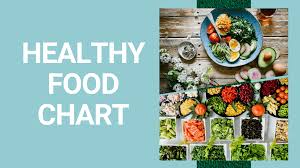What is FOOD?

Food is any substance consumed by living organisms to provide nutritional support, sustaining growth, repair, and vital processes, and providing energy. It is typically of plant, animal, or fungal origin and contains essential nutrients.
Here’s a more detailed breakdown:

- Nutrients: Food contains essential nutrients like carbohydrates, fats, proteins, vitamins, and minerals that are vital for bodily functions.
- Energy: Nutrients in food provide the energy needed for activities and bodily processes.
- Growth and Repair: Food is essential for building and repairing body tissues.
- Vital Processes: Food plays a crucial role in regulating various bodily functions.

- Plants: Fruits, vegetables, grains, and legumes are examples of plant-based foods.
- Animals: Meat, poultry, fish, eggs, and dairy products are derived from animals.
- Fungi: Mushrooms are a common example of fungal food sources.
Types of food:

-
Carbohydrates:
Provide the body with quick energy and include foods like grains, fruits, and vegetables.
-
Proteins:
Essential for building and repairing tissues and include foods like meat, poultry, fish, and legumes.
-
Fats:
Provide energy and help in nutrient absorption.
-
Vitamins and Minerals:
Found in a wide variety of foods, these are crucial for various bodily functions.
- Food plays a significant role in human culture, with different regions and societies having unique culinary traditions.
- Food can be a carrier of cultural identity and a source of social connection.
- Rice dishes: Fried rice, biryani
- Pizza: A popular global dish
- Pasta dishes: Spaghetti, lasagna
- Curry dishes: Chicken tikka masala, yellow curry
- Hamburgers: A classic fast-food option
- Chole Bhature: A popular Delhi dish
- Biryani: A famous Indian rice dish
- Chaat: A savory Indian snack
Top 10 Foods for Health

1. Water
Drink 8 to 12 cups of water daily.
2. Dark green vegetables
Eat dark green vegetables at least three to four times a week. Good options include broccoli, peppers, brussel sprouts and leafy greens like kale and spinach.
3. Whole grains
Eat whole grains sat least two or three times daily. Look for whole wheat flour, rye, oatmeal, barley, amaranth, quinoa or a multigrain. A good source of fiber has 3 to 4 grams of fiber per serving. A great source has 5 or more grams of fiber per serving.
4. Beans and lentils
Try to eat a bean-based meal at least once a week. Try to add legumes, including beans and lentils, to soups, stews, casseroles, salads and dips or eat them plain.
5. Fish
Try to eat two to three serving of fish a week. A serving consists of 3 to 4 ounces of cooked fish. Good choices are salmon, trout, herring, bluefish, sardines and tuna.
6. Berries
Include two to four servings of fruit in your diet each day. Try to eat berries such as raspberries, blueberries, blackberries and strawberries.
7. Winter squash
Eat butternut and acorn squash as well as other richly pigmented dark orange and green colored vegetables like sweet potato, cantaloupe and mango.
8. Soy
25 grams of soy protein a day is recommended as part of a low-fat diet to help lower cholesterol levels. Try tofu, soy milk, edamame soybeans, tempeh and texturized vegetable protein (TVP).
9. Flaxseed, nuts and seeds
Add 1 to 2 tablespoons of ground flaxseed or other seeds to food each day or include a moderate amount of nuts – 1/4 cup – in your daily diet.
10. Organic yogurt
Men and women between 19 and 50 years of age need 1000 milligrams of calcium a day and 1200 milligrams if 50 or older. Eat calcium-rich foods such as nonfat or low-fat dairy products three to four times a day. Include organic choices.
Junk food refers to food and drinks that are high in calories, unhealthy fats, added sugars, and/or salt, but low in essential nutrients like vitamins, minerals, and fiber. These foods are often heavily processed and offer little nutritional value, contributing to weight gain and potential health problems when consumed in excess.
What is junk food?

-
High in calories, fat, sugar, and/or salt:
Junk food is often characterized by its high content of these components, which can lead to weight gain and other health issues.
Unlike healthy foods, junk food lacks the vitamins, minerals, and fiber that the body needs for optimal function.
Many junk foods are highly processed, meaning they have undergone significant changes during production, often stripping them of their natural nutrients.
Eating a balanced diet
Eating a healthy, balanced diet is an important part of maintaining good health, and can help you feel your best.
This means eating a wide variety of foods in the right proportions, and consuming the right amount of food and drink to achieve and maintain a healthy body weight.
This page covers healthy eating advice for the general population.
People with special dietary needs or a medical condition should ask their doctor or a registered dietitian for advice.